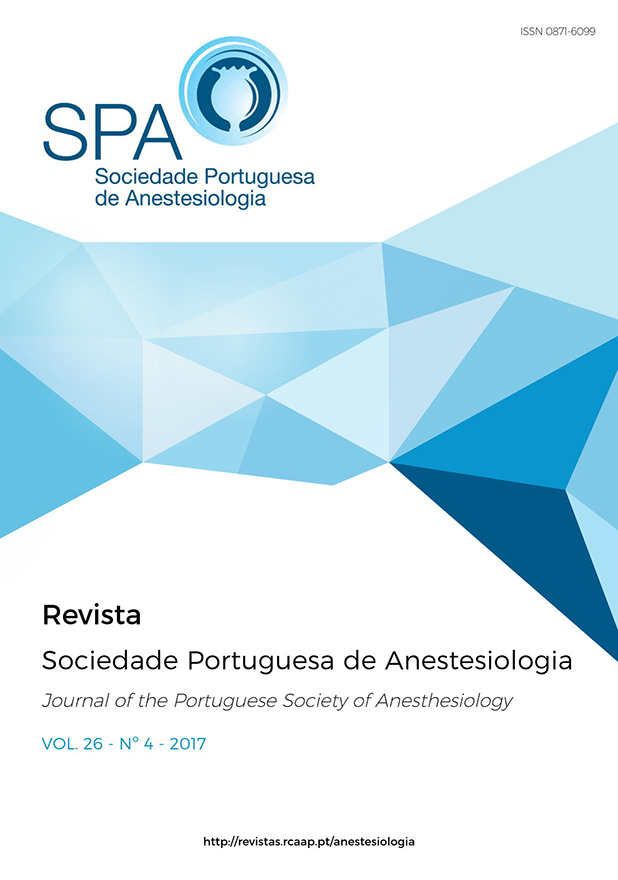Current trends in Regional Anesthesia: a survey on Portuguese Anesthesiologists motivation and practice
DOI:
https://doi.org/10.25751/rspa.10499Palavras-chave:
Regional anesthesia, regional techniques, focus group, delphi processResumo
Introduction
The use of Regional Anesthesia techniques has gained increasing popularity. There are few data about conditions affecting education, attitudes and limitations for regional techniques use. The purpose of this study was to know the current practice of Regional Anesthesia in Portugal and to determine the factors affecting its application among the Portuguese Anesthesiologists.
Methods
The “Practice of Regional Anesthesia Questionnaire” was designed using a focus group, a Delphi process and a pilot test. The 32 items were divided into four scores: motivation, advantages, training and barriers. Groups of specialists in Anesthesia for more or less than 10 years, members of a Regional Anesthesia Society and paediatric experience were studied. The questionnaire link was sent by e-mail to Portuguese hospitals with training programs.
Results
190 Anesthesiologists answered the questionnaire. Younger anesthesiologists achieved higher scores on advantages. Members of a Regional Anesthesia Society were more motivated and exhibit more versatility in Regional Anesthesia. 52% of responders didn’t execute regional blocks in children due to inadequate training. The majority of the responders didn’t believe that Regional Anesthesia delays the starting times of surgeries or the time for discharge from a post-anesthesia care unit.
Discussion and Conclusion
Most Portuguese Anesthesiologists were motivated and interested in Regional Anesthesia. The main reported limitation was inadequate training. Training programs must be implemented so that regional techniques become a competency of every Anesthesiologist. This study may function as a benchmark for future assessment of the Regional Anesthesia practice and for evaluation of the implemented measures.
Downloads
Ficheiros Adicionais
Publicado
Como Citar
Edição
Secção
Licença
Os artigos estão livremente disponíveis para serem lidos, descarregados e partilhados a partir do momento da sua publicação.
A RSPA reserva-se o direito de comercialização do artigo enquanto parte integrante da revista (na elaboração de separatas, por exemplo). O autor deverá acompanhar a carta de submissão com a declaração de cedência de direitos de autor para fins comerciais.
Relativamente à utilização por terceiros a Revista da SPA rege-se pelos termos da licença Creative Commons “Atribuição – uso Não-Comercial (CC BY-NC).
Após publicação na RSPA, os autores ficam autorizados a disponibilizar os seus artigos em repositórios das suas instituições de origem, desde que mencionem sempre onde foram publicados.


